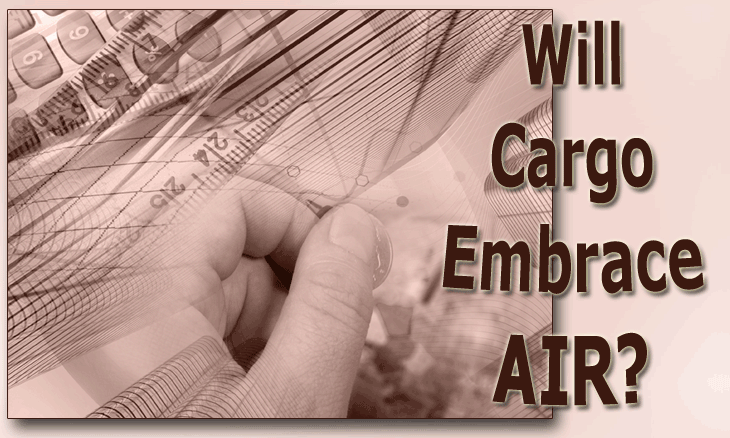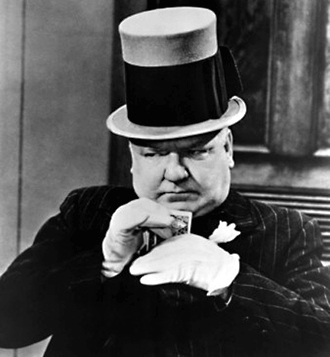
Quote of the week from
a trusted forwarder source that asked for anonymity:
“Well, at least so far, nobody seems
to hate it.
“Hopefully the implementation of all-in
rates will expand to other carriers.
“The glaring differences in fuel surcharges
(LH $ 1.05 -- CV $0.65) are not sustainable and may not even be legal.”
While the air cargo business constantly
advertises itself as one of the most innovative industries and the one
most prone to change, most of the occurrent change is of a less dramatic
nature—unless, of course, we talk about cargo security, which is
a horse of a different color.
But right now a door has opened, and some
“All-in-Rates“ devotees are pushing AIR into what they hope
could be a step-change for the air cargo business.
A Road Less Travelled
On February 1, Emirates Airlines (EK) introduced
AIR across its routes to and from Europe; the rest of EK’s network
will follow on March 1.
Since EK is, according to the IATA WATS,
the number one cargo carrier in FTKs carried, the move has been widely
reported and discussion and interest continue.
Qatar Airways (QR) said that its cargo offering
would take a “phased approach from April 1, 2015, onwards,”
moving into AIR and abandoning security (MOC) and fuel (MYC) surcharges
while keeping others, where applicable.
Just this week IAG Cargo said in a press
release:
“At the start of the Summer season
2015 we will be removing our fuel surcharge (FSC) and exceptional handling
charge (EHC) in favor of a simpler pricing structure based on one freight
rate.”
Forwarders and shippers alike have welcomed
the move to AIR.
 Mr.
Joost van Doesburg, representing the European Shippers’ Council
(ESC) said, “Shippers appreciate is being able to plan ahead and
forecast what they are likely to pay for air transport. Mr.
Joost van Doesburg, representing the European Shippers’ Council
(ESC) said, “Shippers appreciate is being able to plan ahead and
forecast what they are likely to pay for air transport.
“The all-in system will make that
possible,” he added.
Mr. Doesburg also expressed his expectation
that these changes would be largely cost-neutral while disapproving of
fuel surcharges maintained in time of sharply reduced fuel costs, and
complained that fuel surcharges lack “transparency.”
That, however, may bespeak Mr. Van Doesburg's
lack of understanding about the mechanics at work in the background of
the industry.
The sharp decline in fuel prices in the
2nd half of 2014 was unexpected and unforeseen, so most airlines are locked
in fuel hedging contracts that actually work to their disadvantage this
time.
Why AIR, however, should add transparency
to a price will probably remain Mr. Van Doesburg’s secret.
While FIATA welcomed EK and QR’s move
to AIR, they also pointed out that “the simplification of rate structures
will be of significant benefit to forwarders and shippers alike,”
sentiments which were echoed by the British BIFA, the Canadian CIFFA,
and the French CLECAT, among others.
While talk is cheap, appreciation for the
move made by EK, QR and now IAG on the side of leading forwarders such
as Panalpina, DB Schenker, Yusen, and Dachser may be what really counts
in the long run.
If shippers and forwarders want AIR, there
will not only be a shift towards the carriers who offer it, but also an
opportunity for these carriers to charge a fixed all-in premium rate,
since it makes a lot more sense to factor a reasonable yield into an all-in
rate than to cross-subsidize poor yields with surcharges, something the
forwarders continuously accused the carriers of practicing.
| 
As
Cuthbert J. Twille, W.C. Fields was 'All–In,' playing a card
shark in the 1933 film My Little Chickadee.
Whether air cargo will brand a new
'All-In–Rates initiative in 2015, or—as was the practice
before the Iraq War—just go back to calling packaged charges
“All Inclusive Rates” is still up in the AIR. |
What’s
Old Is New
All-In-Rates used to be the norm, although
the words were “all inclusive” until the early 1990s, when
the first Iraq War and rising fuel prices prompted airlines to introduce
“surcharges.”
War Risk Surcharges, Security Surcharges,
and, most importantly, Fuel Surcharges were introduced and gradually raised
to levels that sometimes amounted to more than the actual cargo rate.
While skyrocketing fuel prices and security
costs after 911 left the airlines few alternatives, these measures met
reluctance and disapproval on both the forwarder and shipper side of the
transportation equation:
To put it bluntly, shippers felt “surcharges
were never really transparent” and seemed to “always move
in one direction: upwards.”
On the forwarder side the beef was always,
“the forwarder is responsible for paying the entire airfreight costs
to the airline (freight net rates plus surcharges plus taxes) while the
forwarder’s commission was restricted to the cargo rate as such
and did not include the surcharges.”
Both forwarders and shippers upped their
mistrust when it was revealed that a number of leading carriers had been
involved in illegal surcharge fixing.
 Who Is All-In?
Who Is All-In?
In Germany, Director
Air Cargo for the German Forwarders’ Union DSLV (Deutscher Speditions
– und Logistikverband) Reinhard Lankes was quick to express his
hopes that “further airlines will follow these steps to all-in rates.”
Right now major Asian carriers such as Korean
Air (KE), Cathay Pacific (CX), and China Eastern (MU), and majors in Europe
decline to comment, but indicate that they ‘closely follow the developments
and will continue to meet their customers’ requirements and expectations,’
and there are some others in this air cargo business of ours that have
some definite observations looking into AIR.
Bill Boesch
Bill Boesch, who has been in the in the
transportation and logistics industry for 50 years had this to say:
“When I was at AA, we did research
on the passenger side on rates and found out the public viewed airlines
lower than used car dealers.
 “Since then, the airlines have done
a lot to help improve this image by on-line rate engines, special ratings,
airline travel points on tickets, credit cards, etc., etc.
“Since then, the airlines have done
a lot to help improve this image by on-line rate engines, special ratings,
airline travel points on tickets, credit cards, etc., etc.
“But in the end, the Revenue Management
Systems (RMS) still control the situation. Air Cargo Airlines mostly do
not have RMS.
“The traveling public as well as air
cargo customers want the lowest possible rate they can get with reliable
service and will shop around to find it.
“If airlines try to signal to other
airlines, it is against the law in most countries and Europe and the U.S.
has made that very clear.
“For years all of the airline industry
has been trying to find ways to get the shipping and traveling public
to look at costs versus reliability and quality.
“Passenger carriers have done their
First Class, Executive Class, Business Class, Platinum Class, Goals Class,
Special Legroom, and what have you.
“Cargo carriers have tried to brings
cost, reliability, and quality into focus, but the only real success in
this effort was gained by integrators like FedEx, UPS, etc.
“When I was at Pan Am the travel agents
attacked us every time we tried to improve the passenger rates.
“When we put in automatic ticking
machines at the airports the travel agents threatened to embargo us.
“The airlines stood their ground with
the public interface IT solutions and in the end, dealing directly with
the public worked and took control back from the travel agents.
“Travel agents now are niche players
and they no longer get the best rates and commission and therefore cannot
play the rate game.
“When I started in the cargo business,
Specific Commodity Rates (SCR) were the rates used.
“The forwarders were the airlines’
agents to help the airlines reduce their costs through consolidations
and were given better rates for doing that.
“Then the forwarders got IATA to approve
commissions for consolidations.
“The forwarders started to control
more and more revenue and became the customer. They demanded lower bulk
rates, special contract rates, part charter rates, and what have you.
“The airlines tried to deal directly
with the shippers but the forwarders threatened to embargo them, just
like the travel agents did years before.
“But unlike the passenger industry,
the cargo side mostly backed down (although there were some exceptions)
and the forwarders today still control the majority of the air cargo revenue.
“Today, like everyone else, the forwarders
are hurting, and ‘All-in Rates’ may be the best move the airlines
can make to win back control.”
 Ray
Curtis, Vice President – Global Cargo Sales for Delta Air Lines Ray
Curtis, Vice President – Global Cargo Sales for Delta Air Lines
“At the end of the day, what matters
is that we are responsive to our customers’ needs and provide them
a market competitive structure.
“We are in a partnership with our
customers and it is vital that we offer the products and services they
need to support their customers.
“At Delta, we are fortunate to have
an incredible sales team who has excellent relationships with our customers.
“We talk to our customers every day
and listen to their feedback—this is our guiding light to growing
our respective businesses.”
Geoffrey Arend
|





